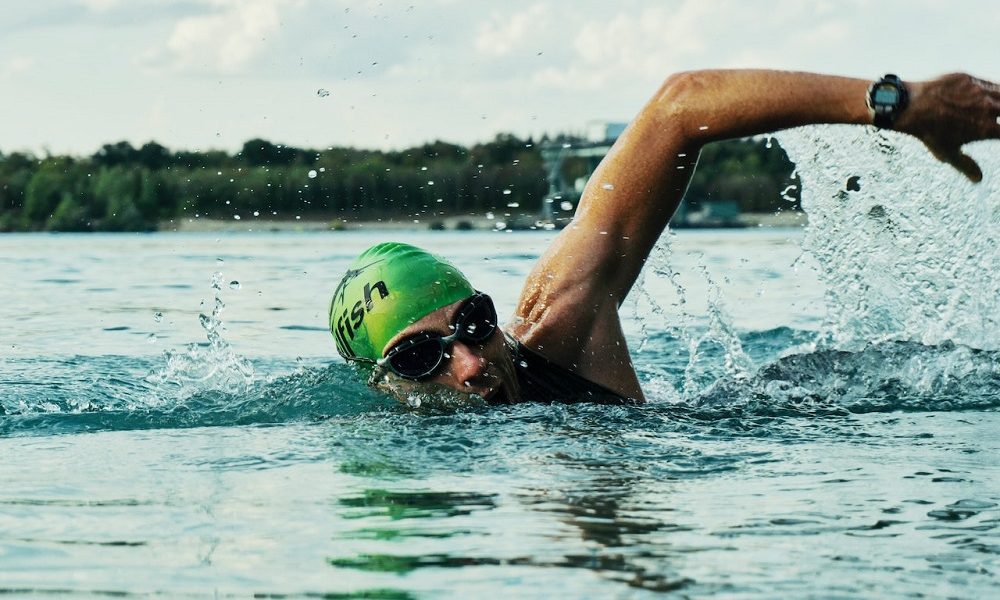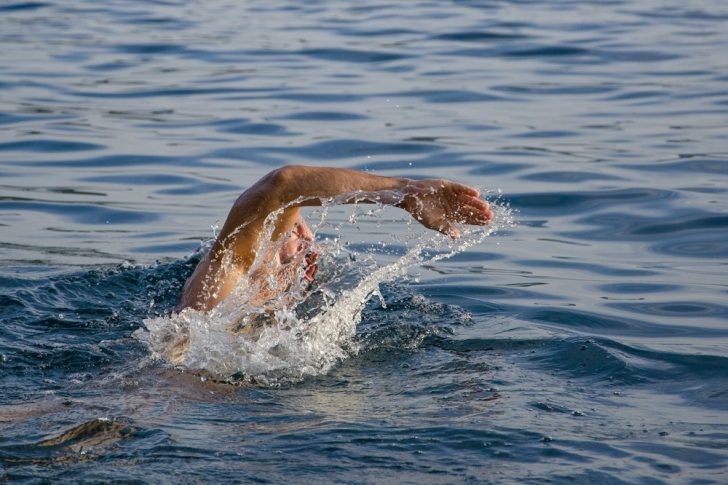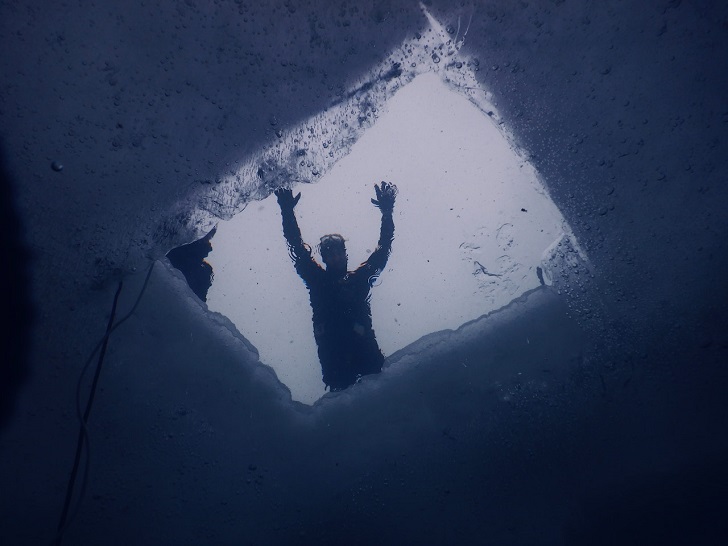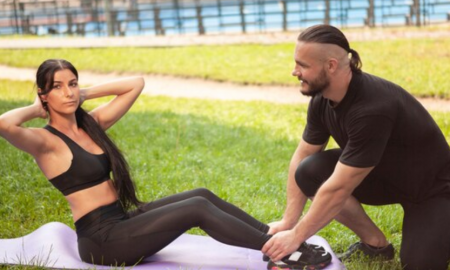
Is Swimming in Cold Water Good for You?

Swimming is a beloved activity that provides numerous physical and mental health benefits. Swimming can be a fantastic workout, whether you’re gliding through the calm waters of a warm, sunny beach or braving the icy embrace of a cold lake. But is swimming in cold water good for you? Let’s dive into the science and explore the potential benefits and risks.
An Invigorating Experience
Cold water swimming, often called “wild swimming,” has recently gained popularity. It involves taking a dip in natural bodies of water like lakes, rivers, or the ocean, where water temperatures can vary significantly depending on the location and season. While many people find cold water swimming invigorating and even addictive, it’s essential to understand the potential health effects.
Physical Benefits of Cold Water Swimming
Swimming in cold water offers several physical advantages. One notable benefit is an increased calorie burn. Swimming in cold water makes your body work harder to maintain its core temperature. This extra effort burns more calories than swimming in warmer conditions, making it an attractive option for those looking to shed some pounds while enjoying the water.

mali maeder/ Pexels | Listen to the whispers of your body
Additionally, cold water immersion triggers the cold-shock response, redirecting blood flow from your extremities toward your vital organs to keep them warm. Over time, this can help improve your circulation and cardiovascular health. Some individuals may even find relief from conditions like arthritis due to reduced inflammation and pain associated with cold water swimming.
Mental Benefits of Cold Water Swimming
Cold water swimming also offers several mental health benefits. The shock of cold water immersion may initially be intense, but it can profoundly calm the mind. Combining natural surroundings and the cold water’s shock can reduce stress and anxiety, promoting relaxation and mental well-being.
Moreover, cold water swimming releases endorphins, the body’s natural mood lifters. This can improve well-being and happiness, making it a great activity for those seeking mental clarity and relaxation. Additionally, the mental fortitude required to immerse oneself in cold water can build resilience and mental toughness, contributing to a strong mindset.
Risks and Precautions
While cold water swimming offers numerous benefits, being aware of potential risks is essential. Prolonged exposure to cold water can lead to potentially life-threatening hypothermia.

Svetlana Obysova/ Pexels | Cold water knows no bias; it welcomes all who dare to dip.
If you start shivering uncontrollably, experience confusion, or feel extremely tired, exit the water immediately. The initial shock when entering cold water can be intense and may lead to panic or heart problems in susceptible individuals, so it’s vital to acclimate slowly.
Natural bodies of water can have poor visibility, increasing the risk of accidents due to underwater obstacles, currents, and other swimmers. Be cautious and aware of your surroundings. Moreover, check the water quality and safety of the area you plan to swim in, as some bodies of water can contain pollutants or dangerous wildlife.
Individuals with certain medical conditions, such as heart problems, should consult their healthcare provider before attempting cold water swimming. It may not be suitable for everyone.
Getting Started With Cold Water Swimming
If you’re interested in trying cold water swimming, here are some tips to get started safely:
Choose the Right Location
Research and select a safe and accessible location for your cold water swim, preferably in areas popular among other swimmers, as they often have safety measures.

SHVETS production/ Pexels | Some cold water swimmers also wear neoprene caps, gloves, and booties to protect their extremities.
Wear Appropriate Gear
Invest in a good-quality wetsuit or dry suit designed for cold water swimming. These will help you stay warm and buoyant.
Acclimate Gradually
Start with short dips and gradually increase your time in the water to allow your body to adapt to the cold.
Swim With a Buddy
Cold water swimming is safer when done with a friend or a group. This way, you can look out for each other and assist if needed.
Listen to Your Body
Pay close attention to how your body is reacting to the cold water. If you start feeling numb, dizzy, or excessively cold, exit the water immediately.
More in Fitness
-
`
Protein’s Role in Your Diet: Friend or Foe?
Protein, a word synonymous with muscle building and healthy living, has become a major focus in our food choices. From protein-infused...
March 8, 2024 -
`
5 Reasons Why Outdoor Personal Training Will Transform You
It’s that time of the year when spring whispers the promise of renewal, beckoning us to shed the winter blues and...
February 29, 2024 -
`
Atkins Diet: The Ultimate Solution for Weight Loss
Are you ready to embark on a journey towards a healthier lifestyle? While the ketogenic diet has been hogging the spotlight...
February 22, 2024 -
`
ADHD Knows No Boundaries: Even Celebrities Are Affected
Attention deficit hyperactivity disorder (ADHD) often conjures images of bouncing-off-the-walls children struggling to sit still in class. But what if we...
February 15, 2024 -
`
How to Navigate Medicare and Insurance Options in 2024
As we age, maintaining good dental health becomes more important than ever. However, according to the Kaiser Family Foundation, nearly half...
February 6, 2024 -
`
How to Do HIIT on an Elliptical Machine? A Guide to Healthier Living
At the core of this fitness approach is the elliptical machine, also fondly known as the cross trainer. This gym staple...
February 3, 2024 -
`
10 Winter Smoothie Recipes to Savor the Season
Winter’s chill might make you crave cozy soups, but let’s not forget the magic a blender can bring to your cold...
January 24, 2024 -
`
The Heart and Soul of ‘Percy Jackson’: Aryan Simhadri on Embodying Grover
Imagine stepping into a world where ancient myths come alive, where your best friend isn’t just a regular teenager but a...
January 20, 2024 -
`
Everything You Need to Know About Grace Period in Health Insurance Plans
Imagine missing your health insurance premium payment by just a day and facing a health crisis the next day. Scary, right?...
January 10, 2024















You must be logged in to post a comment Login